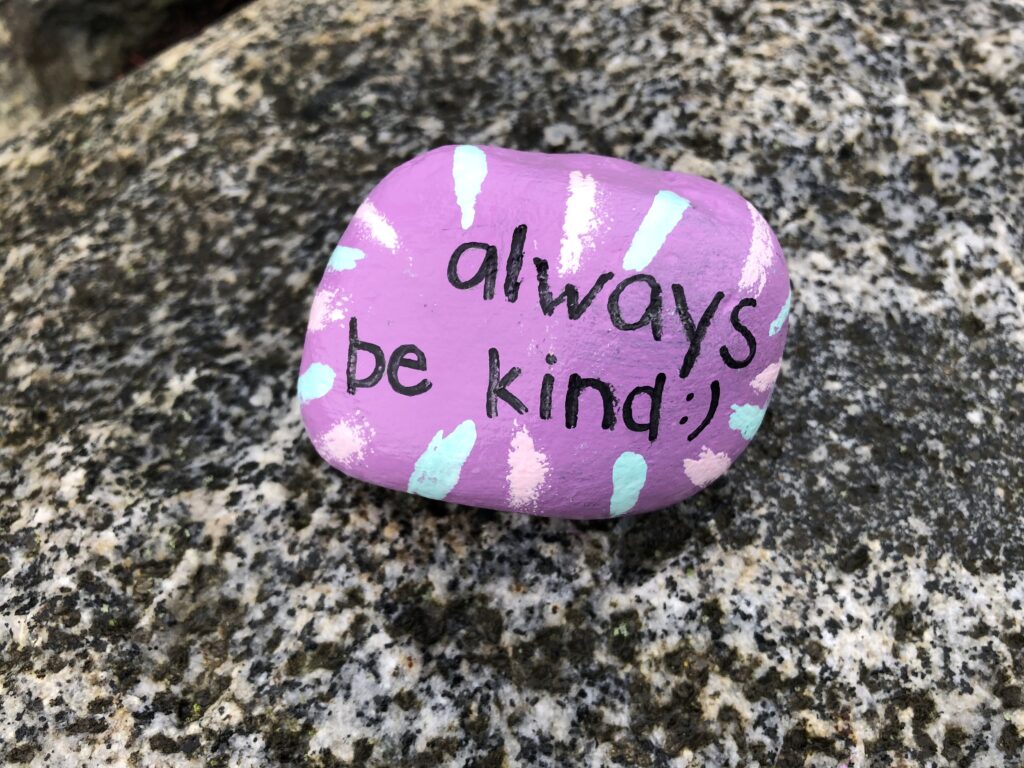
I am a really nice person. I suppose saying that about one’s self does not seem so “nice” if we are practicing what my Southern Granny would have called “Proper Manners.” But at the risk of sounding ill-mannered, I will insist that I am a nice person, or at least try my best to be. I hold doors open for strangers, return stray shopping carts to the storefront, and smile at passersby on the walking path at the park. When neighbors are sick or when a young family at church has a new baby, I do my best to get over in a timely manner with a home cooked meal. I love sending notes and try to tell family and friends I love them and why as often as I can. I tell you this not because I want an award or kudos, or even a thank you note. It’s because as nice as I try to be generally, there is one person I have found myself time and again not being so nice to.
When this girl shows up and I review her latest relationship misstep, or witness the current scrape she’s gotten herself in, I can barely contain myself from giving her the world’s biggest eye roll. Recently she got involved in a parking lot mishap with a yellow traffic pylon that left a neon swipe of paint down the side of her car. All I could think was, “What a careless ninny! If she wasn’t so impatient she wouldn’t have that hideous ray of regret marring her paint job!” At the grocery store the other day she said something to the clerk that was so dorky and embarrassing that I found myself shaking my head at the memory of it later that night while making dinner. I’m not sure exactly what it is, but when I see this girl fail or make mistakes or do “dumb things,” I can’t seem to stop myself from thinking terrible thoughts about her.
The thing is, I promise I’m not like this about other people. When a good friend shares a mistake she’s made or a frustration she has, or if she tell me she regrets some event, I am swift to offer that good friend reassurance, grace, and compassion. When that same good friend relates to me disappointment in herself for the way she handled a disagreement with a child or co-worker and how exasperated she feels, my response is to do nothing but console her and provide reassurance that her actions are completely acceptable, reasonable and kind. As nice as I try to be in general, my power move for a good friend is ultimate kindness.
But not for this other girl.
And it wouldn’t be so bad if this “other girl” wasn’t me. Yes, I’m the one that I am consistently frustrated and embarrassed by. Over and again I can’t believe I said that, or did this thing, or haven’t figured “IT” all out yet. This inner dialogue can be relentless and my self-talk far from compassionate and reassuring. It’s definitely not kind. Instead, I often find myself wide awake in the wee hours re-hashing the “I said-then-they-said” play by play of the event that is causing my consternation. Or I replay a scene and think “If only I had…” and recreate all the ways it could have better turned out.
Not too long ago, I made a mistake that I could not stop berating myself about. I had left my laptop at our vacation rental only to discover I had done it when I arrived at the airport over an hour away from the place. I had to have the property management company ship it to me at my home—an ocean away. For days I kept chastising myself for my carelessness, all the time worrying for the fate of my computer (which, btw, did arrive safely home eventually). Finally, after about Day 3 of my rebuking inner commentary, I had to ask myself, “What is the point of this negative self-talk?” I realized the negativity was only making me feel worse about myself and feeling bad about myself was causing me to withdraw from others around me. It was like I was putting myself in time out. Further, the negative self-talk was causing me added stress and anxiety over a situation that was out of my control. I recognized I couldn’t change the past. I could only move forward in the current circumstance and make the next best decision.
That realization was a wake-up call. Since then, I’ve been practicing reframing the negative self-talk in my head. And friends, it does require practice! The negative thoughts abound, but I’ve made it a point to first, notice them and second, to challenge them. That’s it. Just look without judgment and then decide the truth of those statements to myself. Here’s how I had to “practice” recently: I was upset after stepping on the scale the other day when faced with the fact that I’ve gained a few pounds this summer. My go-to conversation in my head was to tell myself that I had messed up again, that I was failing in my health efforts, that I’m never going to get this healthy living thing right. But then, I noticed those statements and I challenged them. I was able to ask myself some important questions: First, had I really “messed up”? Was I actually “failing”? Did a few pounds mean I was “never going to figure it out”? Upon further examination, I realized the truth is that gaining a few pounds is just part of the learning process. A few pounds is information. It’s simply data that whatever I’d been doing the past few weeks wasn’t garnering me the health results I sought. So maybe it was time to tweak what I’d been doing? Move on. Choose the next best thing.
Just the act of gently challenging my negative thoughts filled me with relief. I could literally feel my shoulders relax and a shift in my psyche. Suddenly, I could see that I had been making a big deal over something relatively minor and that what I needed was a little compassion and grace. So I told myself I was doing a great job learning what was and what wasn’t working on this health journey, and that I knew I would do a great job going forward. I realized after this self-chit-chat, I felt empowered, encouraged and strong. I could see that what I had said to myself was nice. It was gracious. It was kind. And I realized it was the sort of thing I would have told any good friend.
